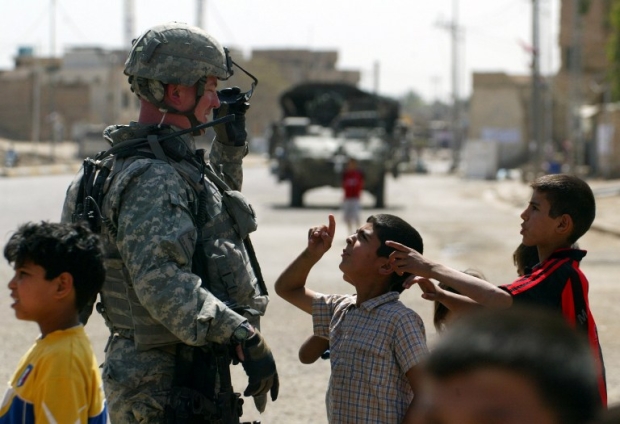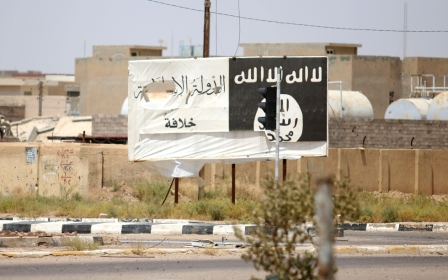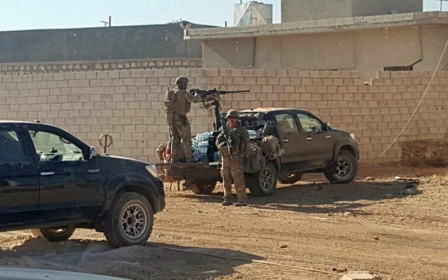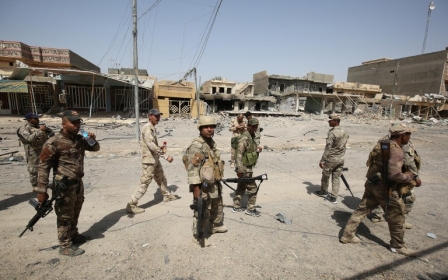Canada postpones case against Iraq war resisters, but should drop it entirely
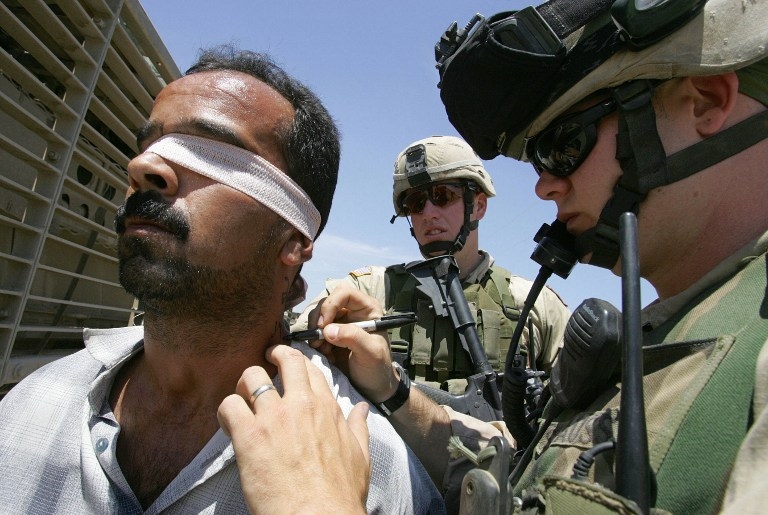
Approximately 15 people who left the US military in opposition to the Iraq war and then came to Canada still live in the country.
The Canadian government had until 16 September to indicate to the Federal Court whether it intended to drop litigation against four war resisters or go ahead with proceedings against them later this year.
The Canadian government should permanently drop all litigation against the resisters and, instead, give them residence in the country
That deadline passed without any clarity from the government, but Michelle Robidoux, spokeswoman for the Toronto-based War Resisters Support Campaign, has informed me that the litigation has now been postponed as the resisters’ lawyer works on getting their humanitarian and compassionate applications processed.
While postponement is better than carrying out the proceedings, the Canadian government should permanently drop all litigation against the resisters and, instead, give them residence in the country.
The majority of Canadians support granting residency to Iraq war resisters and with good reason. There are humanitarian grounds for allowing them to stay in Canada. They should also be granted that right because people who decline to fight in unjust wars deserve support and admiration, not years of legal purgatory followed by deportation and jail time.
Soldiers who leave the American military are denied due process. Canadian courts have previously found that American war resisters returned to the US are at risk of facing unfair trials before military tribunals that are not independent.
They also risk persecution through disproportionate sentencing. The US has generally given an administrative discharge to people who left the military without criticising American policy in Iraq war, but has criminally prosecuted those who left and were vocal about their opposition.
In addition, Canada’s Federal Court ruled in at least one case that Canadian immigration officials who want to send Iraq war resisters back to America ignored the fact that US violations of the laws of war were “routine and authorised” in Iraq.
Threat of serious punishment, lives of uncertainty
Precedents, moreover, show that soldiers who leave the US military, seek refuge in Canada, and are sent back to the US will be subject to serious punishments.
Robin Long came to Canada after leaving the US military when it became clear that Saddam Hussein’s government did not have weapons of mass destruction and when he learned of the torture conducted by US forces at Abu Ghraib prison. In July 2008, Canada deported Long and he was sentenced to 15 months in a US prison and ultimately served a year.
In another case, Daniel Sandate says that his superiors in the US military ignored his mental health challenges, leading him to come to Canada. When Canada deported Sandate in 2008, he was sentenced to eight months in prison.
Canada also deported Cliff Cornell, who told an American court that he left the US military because he feared for his life and couldn't stomach the thought of killing anyone. He was sentenced to a year in prison and was released early.
Currently, Americans who escaped the Iraq war are living difficult, uncertain lives in Canada, staring at the threat of being sent to the US and jailed.
One of them, Joshua Key, says that he suffers from post-traumatic stress disorder (PTSD). While on tour in Iraq, he decided he had to leave the US military when a seven-year-old girl with whom he frequently shared his rations crossed the street toward him “with a smile on her face and her head exploded like a mushroom” as she was shot.
Dean Walcott came to the conclusion that the Iraq war was immoral after experiences such as working at a military hospital in Iraq when a tent city was set on fire by a mortar round and the hospital was filled with burn victims, including children, who were screaming and bloodied.
Rodney Watson - who described the attack on Iraq an “unjust war based on lies” - has had to live inside a Vancouver church for nearly seven years to avoid deportation to the US and he can only see his young son sporadically.
Wanton criminality
That the war was unjust is indisputable. In 2007 and in one of the highest estimates to date, Britain’s Opinion Business Research polling firm survey suggested that more than a million Iraqi civilians died because of the US-led invasion.
One should not have been obligated to participate in wanton criminality like the invasion and occupation of Iraq
There’s also evidence to suggest the US used depleted uranium in Iraq as millions of Iraqis were driven from their homes. The US used white phosphorous in Fallujah, which has led to rates of infant mortality, cancer and leukemia higher than those reported following America’s use of atomic bombs in Hiroshima and Nagasaki.
The invasion and occupation, which Canada participated in, destroyed Iraq’s infrastructure, and fuelled sectarianism. The attack led to the rise of the Islamic State (IS) group and new real estate for al-Qaeda, which enabled both groups to play their parts in the torture of Iraq and Syria.
This is why “war resisters” is a much more apt term for people who refused to fight in Iraq than “deserters”, a term which suggests that the persons in question have abandoned that with whom or with which they ought to remain.
But one should not have been obligated to participate in wanton criminality like the invasion and occupation of Iraq. Precisely the opposite: it was incumbent upon those being asked to participate in mass violence to refuse.
Such acts obstruct institutions like the US military as they carry out mass killings and devastation. Thus whether the motive was self-preservation or a desire not to kill or maim, or some combination of these, opting against fighting with US forces in Iraq should constitute an entirely justified and necessary act of resistance.
The Canadian state does not make policy decisions based on moral considerations. It will need to be pushed to let the resisters stay: consult the War Resisters Support Campaign’s website to find ways to show solidarity.
- Dr Greg Shupak is an author and activist who teaches Media Studies at the University of Guelph in Canada.
The views expressed in this article belong to the author and do not necessarily reflect the editorial policy of Middle East Eye.
Photo: A blindfolded Iraqi man is marked by a US Army soldier from the 1st Battalion 5th Infantry, before he is loaded into a military vehicle to be taken for questioning, after him and two relatives were identified as suspects when their vehicles was stopped during a routine document check in Mosul in May 2005 (AFP)
New MEE newsletter: Jerusalem Dispatch
Sign up to get the latest insights and analysis on Israel-Palestine, alongside Turkey Unpacked and other MEE newsletters
Middle East Eye delivers independent and unrivalled coverage and analysis of the Middle East, North Africa and beyond. To learn more about republishing this content and the associated fees, please fill out this form. More about MEE can be found here.



